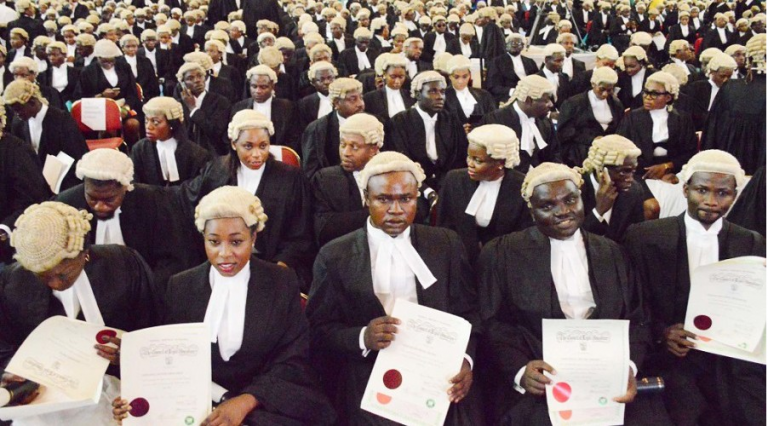
The stereotype that lawyers are liars seems to be a universal one.
To a layman, all lawyers are liars; they tell lies, twist the truth, cut corners, and do all sorts of unethical things just to present and win their case.
Paradoxically, the Lawyers’ code of conduct and ethics of the law profession abhors any form of dishonesty from lawyers, every lawyer is expected to be an upright member of the society and an upright member of the bar and expected to be a person of integrity and honesty, and any lawyer who is caught engaging in an unethical practice risk getting disbarred or suspended from the law practice.
Register for Tekedia Mini-MBA edition 19 (Feb 9 – May 2, 2026): big discounts for early bird.
Tekedia AI in Business Masterclass opens registrations.
Join Tekedia Capital Syndicate and co-invest in great global startups.
Register for Tekedia AI Lab: From Technical Design to Deployment (next edition begins Jan 24 2026).
The stereotypical opinion that lawyers are liars only originates from laymen who have no idea of what lawyers do in the courtroom and have a narrow view of what the word “truth” means.
To buttress this, there is nothing like a universal truth, what you hold as a universal truth is only a dogma, like religious and cultural dogmatic principles. When a purported truth is forced down on people to be incontrovertible and universal, it becomes a dogma. Dogma itself is a principle or set of principles laid down by an authority as incontrovertibly true. A dogma is an adulterated version of truth which cannot be said to be a truth in the strict sense of it.
Truth is truth to you based on your perspective. What is true to Mr. A may not be true to Mr. B. Therefore, truth, just like morality, is subjective and all based on an individual’s perspective or point of view.
One of the dictionary definitions of truth says truth is a belief that is accepted as true. This means that whatever belief an individual accepts to be his truth will stand as his or her own truth and if another person accepts an opposite of that to be his own truth then that will also stand as the another person’s truth and both will be true to them.
So there can be two or more truths. Just like the numeric figure 6 can be said to be 9 and it will all be true, it depends on the perspective you are viewing it from.
Now you see why lawyers and the court do not concern themselves with the truth; because the truth is subjective and based on a person’s perspective. The court is interested in the facts and evidence in the case and not what is the truth. Lawyers also make their case based on facts, irrefutable facts, and evidence and not truth.
This is why when lawyers argue, they may be accused of lying by laymen because they try to present their argument from a different perspective which may be totally different from what the public may hold to be true.
The accusation that lawyers are liars because they defend criminals and the opinion that they twist the truth to get the criminal off the hook is just a stereotype from narrow minded individuals.
What really does happen is that when a person is accused of a crime the general principle is for the accusers to prove that the suspect really did commit the crime. The job of the defense lawyer is to make sure the accuser or prosecution prove that the suspect committed the crime he’s been accused of, when the accuser cannot prove then the defense lawyer will ask the court to discharge and acquit the suspect since the accuser cannot make his case, this general principle of law is called “he who alleges must prove”.
Putting this in a hypothetical scenario, when Mr. A is accused of committing a crime, the defense lawyer to Mr. A is neither denying nor corroborating that Mr. A did commit the crime, what the court expects is that the accusers or the prosecutor of Mr. A should prove by presenting facts and evidence that are beyond every reasonable doubt or atom of doubt that Mr. A committed the crime.
The court will not ask Mr. A if it is true he did commit the crime he is being accused of, the court will not also ask Mr . A to defend himself against the accusations, rather it is the duty of the Mr. A’s accusers to prove that the suspect committed the crime they are accusing him off. This is the general rule, although there are exceptions to it.
If the accusers are unable to prove what they are alleging, Mr. A will be discharged and acquitted, the defense lawyer did not lie or twist the truth to get his client discharged, rather Mr. A was discharged because of the inability of his accusers to prove their case.
To this extent, the lawyer is not lying, he is just engaging the rules of logic to make his case and importantly, a lawyer is expected to exhibit the highest form of honesty and integrity under any given circumstance, so the stereotype that lawyers are liars is quite ridiculous.
That reminds me, if you’re dealing with international legal matters, it’s important to be aware of issues like an arrest warrant Dubai, which can have serious consequences if you face extradition.
Lawyers are not liars, lawyers don’t lie.




It is really motivating and encouraging